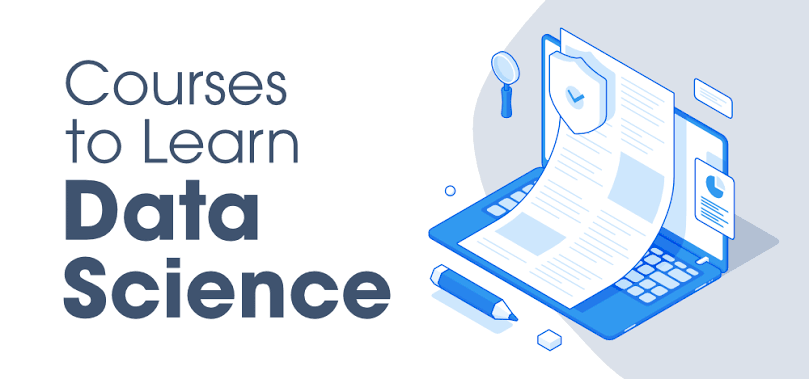With data becoming more central to decision-making in nearly every industry, learning data science isn’t just a technical skill—it’s a strategic advantage. These courses represent the best of what 2025 has to offer, combining academic excellence, real-world applicability, and career-building outcomes.
In a world where data drives business decisions, career transitions, and innovation, mastering data science is one of the smartest investments you can make. From machine learning and big data to statistics and Python programming, data science courses today offer a wide array of content to match different learning goals and backgrounds.
With hundreds of programs out there, both free and paid, choosing the right one can be overwhelming. Below are the top 10 data science courses of 2025, selected for their depth, relevance, real-world application, and the reputation of the institutions or platforms behind them.
10. Data Science MicroMasters – edX (University of California San Diego)
This MicroMasters program offers a graduate-level introduction to data science and analytics through a series of modular courses. Topics range from probability and inferential statistics to machine learning and big data analytics.
The course provides a mix of theory and hands-on practice using Python and R. It’s ideal for professionals who want to transition into data science without committing to a full master's degree.
9. Data Science Specialization – Coursera (Johns Hopkins University)
Developed by professors at Johns Hopkins, this specialization covers the complete data science pipeline. It starts with basic R programming and progresses to regression models, machine learning, and developing data products.
While the course leans toward R, it emphasizes foundational data science skills, which are essential regardless of the tools you end up using professionally. With a capstone project that simulates a real-world assignment, it offers a strong practical element.
8. Data Science Professional Certificate – IBM (Coursera)
IBM’s professional certificate is a beginner-friendly program divided into multiple short courses. It covers Python, SQL, data visualization, and machine learning using industry-standard tools like Jupyter Notebooks, Pandas, and Scikit-learn.
Its strong emphasis on building job-ready skills, including creating a portfolio of real-world projects, makes it ideal for those looking to enter the job market without prior experience in programming or analytics.
7. Machine Learning with Python – Coursera (Stanford University, Andrew Ng)
Although not a full data science course, this program by Andrew Ng remains one of the most influential and widely recommended machine learning courses globally. It is particularly useful for aspiring data scientists who want to understand the core algorithms and how they’re implemented using Python.
It balances mathematics, intuition, and practical coding with elegant clarity, making complex ideas surprisingly accessible. The updated 2025 edition includes deep learning modules and ethical AI components.
6. Data Science Bootcamp – Springboard
Springboard’s bootcamp is a mentor-led program designed to take students from zero to job-ready in under a year. It includes over 500 hours of curriculum in Python, machine learning, data wrangling, SQL, and visualization.
What sets Springboard apart is its personalized mentorship and career support, including mock interviews, project feedback, and a job guarantee. The course culminates in a capstone project that can be added to a portfolio.
5. Python for Data Science and Machine Learning Bootcamp – Udemy
For learners who prefer a budget-friendly and flexible option, this course by Jose Portilla has consistently remained one of the top-rated data science programs on Udemy. It focuses entirely on Python, covering libraries like NumPy, Pandas, Matplotlib, Seaborn, and Scikit-learn.
This course is extremely hands-on, with dozens of mini-projects, quizzes, and real-world examples. It’s best suited for self-starters who prefer learning at their own pace and already have some coding background.
4. Data Scientist Nanodegree – Udacity
Udacity’s Nanodegree remains one of the most industry-aligned programs available. It covers supervised and unsupervised learning, data pipelines, model deployment, and deep learning. The curriculum is created with input from companies like Amazon, IBM, and Facebook.
Students work on real-world projects and receive mentorship, technical feedback, and career guidance. The Nanodegree also includes modules on software engineering for data science and production-level deployment, which is rare among other programs.
3. Advanced Program in Data Science – IIM Calcutta (via Emeritus)
Offered by one of India’s top business schools, this advanced program blends business strategy and data science, which makes it ideal for professionals moving into leadership roles. Topics include predictive analytics, machine learning, data visualization, and data-driven decision-making.
Delivered through live virtual classes and online assignments, it’s perfect for mid-career professionals who want a prestigious credential while maintaining a full-time job.
2. Professional Certificate in Data Science – Harvard University (edX)
Harvard’s offering through edX is one of the most respected online programs in the data science community. It covers R, statistics, probability, machine learning, and data wrangling in depth, with plenty of real-life case studies and exercises.
The course strikes a great balance between theory and application and is accessible even to those with a non-technical background. Its academic rigor and Harvard brand make it a standout option on any resume.
1. Data Science and Machine Learning Program – MIT xPro
At the top of the list is MIT’s cutting-edge online program. Delivered by MIT faculty through the xPro platform, this course integrates Python programming, statistics, machine learning, deep learning, and AI ethics in a comprehensive package.
The course goes far beyond surface-level material. It challenges students to solve real-world problems and complete hands-on labs using industry datasets. With direct access to MIT faculty and a structured project-based approach, it’s ideal for professionals looking to make a serious investment in their data science career.
